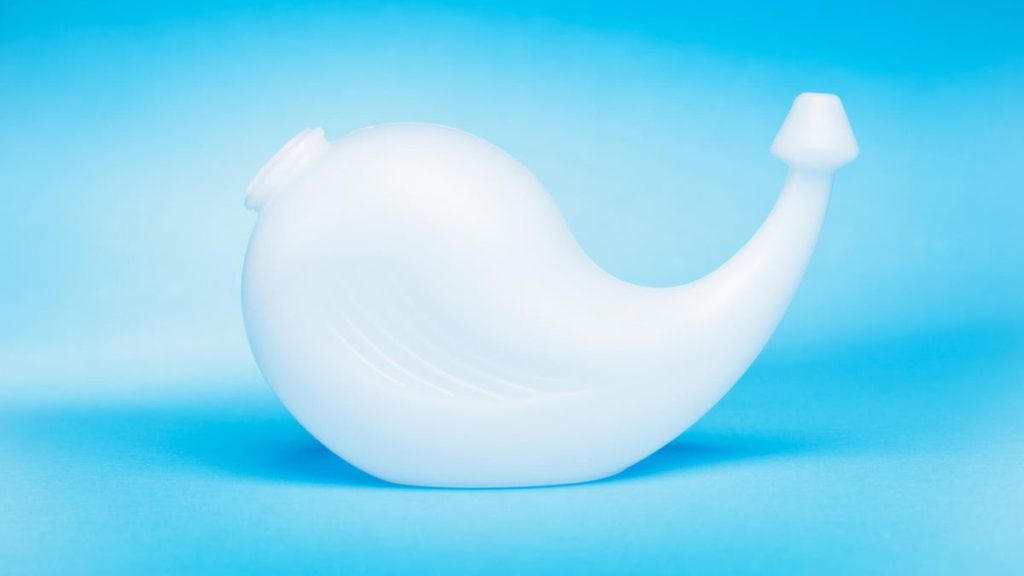Saline solution is a sterile saltwater solution that people with sinus symptoms can use to help clean excess mucus or allergens out of their nasal passages. Nasal rinsing, often done with a neti pot, is a practice that originated in India and South East Asia and is now popular in the West for allergy relief. When done safely with properly sterilized water, nasal rinsing is considered safe to do at home. However, it is important to follow health guidelines for mixing the solution as deaths from sinus rinsing have occurred due to using tap water that hasn’t been sterilized. It’s always recommended to consult a doctor before trying nasal rinsing to determine if it’s suitable for you.
Before making a nasal rinse at home, you will need a device to administer the solution such as a neti pot, rinse bottle, or rubber ear bulb syringe. To safely make your saline solution, follow these steps and tips from various health organizations. Start by finding sterilized or distilled water, or boil your own water for nasal irrigation. You can purchase distilled or sterile water from the store or sterilize tap water by boiling it for a specific duration depending on recommendations. It is crucial to use purified water for nasal rinsing, as tap water can cause serious infections when passed through the nasal passages.
Mix salt and baking soda in a clean container, combining three teaspoons of non-iodized salt with one teaspoon of baking soda. Then add one teaspoon of the dry mixture per eight ounces of lukewarm water, ensuring that all containers used are clean and sanitized before handling the solution. It is important to always use boiled or distilled water for nasal irrigation as it eliminates the risk of infections. Rare deaths linked to nasal rinsing have been attributed to using tap water or unsterilized water, which can lead to severe health issues. Even if using a pre-mixed saline solution, the water used must be sterilized as noted by the Cleveland Clinic.
While making your saline solution at home for nasal rinsing is safe when following proper guidelines, it is not recommended to create contact solution at home. Contact lens storage solution is a specific mix made in a sterilized facility to keep lenses moisturized and free of contaminants. Exposure to water, even if distilled, can cause eye infections that are resistant to treatment. The eyes are vulnerable to serious infections due to their proximity to the brain and lack of protective barriers, making it crucial to avoid any contamination with water or unsterilized solutions. It is essential to use commercially made contact solutions to prevent eye infections and protect eye health.
In conclusion, saline solution is a safe and effective method for nasal rinsing when made and used correctly. By following health guidelines for mixing and using the solution, individuals can benefit from relief of sinus symptoms and allergens. It is important to always use sterilized or distilled water for nasal irrigation to prevent infections that can lead to serious health issues. While homemade saline solutions are suitable for nasal rinsing, it is crucial to avoid creating contact solutions at home to prevent eye infections and protect eye health. Consulting a doctor before trying nasal rinsing is recommended to ensure it is the right option for each individual.











